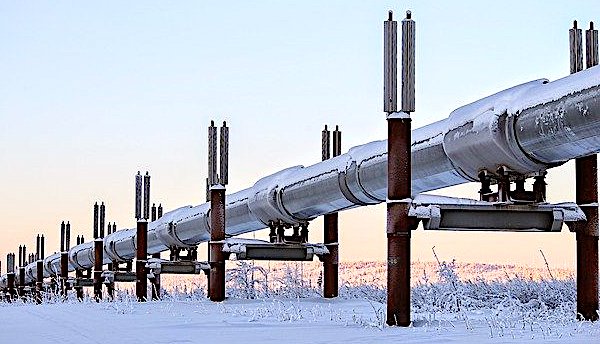
After canceling the Keystone XL pipeline, eliminating thousands of American jobs, President Biden’s administration began negotiating a deal between the Taliban and one of the world’s worst dictatorships for a trans-national pipeline.
An agreement with the government of Turkmenistan would bring gas across Afghanistan and Pakistan to India, writes Michael Rubin, a scholar at the American Enterprise Institute and a former Pentagon official, in a column for the Washington Examiner.
“Consider that while the Biden administration is killing a pipeline from which the public could benefit, Biden is promoting a pipeline to enrich both one of the world’s worst dictatorships and a group responsible for thousands of U.S. deaths,” he wrote.
It’s the same deal that now-Special Envoy Zalmay Khalilzad sought to make with the Taliban prior to the 9/11 attack.
Rubin noted that Freedom House’s latest Freedom in the World report ranks Turkmenistan as among the world’s worst violaters of civil liberties, below even North Korea.
The deal includes paying the Taliban protection money or transit fees for the pipeline transiting Afghan territory. It amounts to a reward of tens of millions a month to the Taliban for its deadly insurgency, further undermining the elected Afghanistan government.
Rubin points out the harm to U.S. strategic interests, arguing that after 20 years there should be no misunderstanding of the Taliban’s malign agenda.
“If the Biden administration says no to pipeline jobs in the Midwest, it should not then turn around and help enrich the Taliban to ship Turkmen gas to the Indian Ocean,” Rubin contended. “It is time for Secretary of State Antony Blinken to call his envoy, end this hypocrisy, and stop coddling some of the world’s most anti-American movements.”
Rubin argued that the cancellation of Keystone also does not help the environment. Canada will continue extracting oil from the tar sands of northern Alberta. But instead of sending the oil through a state-of-the-art pipeline, it be delivered by trains, trucks, existing pipelines and ships, where the damage from a potential spill would be harder to manage.
“Biden’s cancellation cost jobs and pushes Canada toward greater economic cooperation with China,” he wrote. “It also shakes confidence in U.S. business. Who would invest in the country if any future administration can simply renege on deals with the stroke of a pen? Especially, that is, when the investments involved here reach into the billions of dollars?”
‘I feel pretty betrayed’
Among the critics of Biden’s cancellation of the Keystone pipeline are Canadian Prime Minister Justin Trudeau and West Virginia Democratic Sen. Joe Manchin.
Manchin argues the pipeline was a safer way to transport oil than ships or trains.
Earlier this month, the personal impact of Biden’s executive order was captured in an interview with longtime oil and gas industry workers David and Kristina Dickerson.
“I feel pretty betrayed,” David, a 31-year veteran of the industry, said in a “Fox & Friends” interview.
A Fox Business Network feature showed the impact of the loss of thousands of jobs on towns from Canada to Texas.
See the FBN report:
Tim McMillan, chief executive of the Canadian Association of Petroleum Producers, told Reuters that Biden’s action “is killing thousands of Canadian and American jobs at a time when both economies badly need private investment” and wiped out equity investment in the pipeline by Canadian indigenous groups.
WND reported the president of the United Association of Union Plumbers and Pipefitters complained that Biden gave in to the “voices of fringe activists” when he killed the Keystone XL pipeline.
But it shouldn’t have been a surprise, because the union endorsed Biden after he announced he would make the move.
Mark McManus argued that there’s no issue with the environment, insisting that when “built with union labor by the men and women of the United Association, pipelines like Keystone XL remain the safest and most efficient modes of energy transportation in the world.” Without the pipeline, the oil must be transported with trains that are subject to derailing.
Via Wnd
